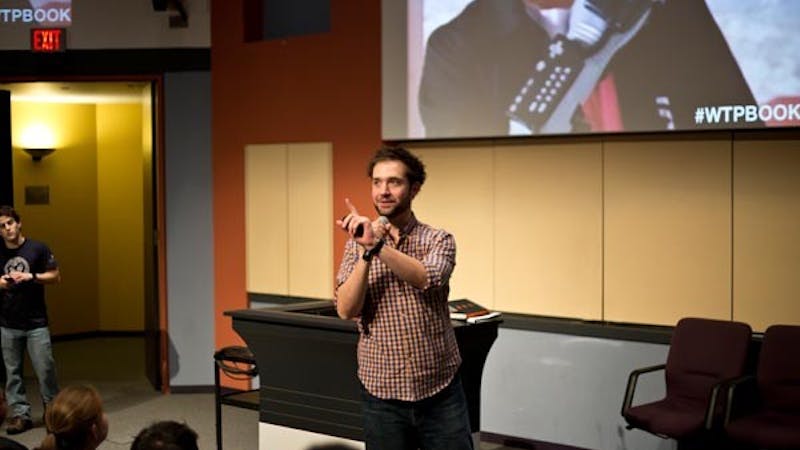NEWS
12/3/13 6:00pm
By Jennifer Shen
Students can now put their whistling skills to the test with Whistle Hero, a web application similar to Guitar Hero designed by a team of five Rice University students that placed first among 64 submissions at the annual HackTX hackathon Nov. 15, according to team member Xilin Liu.According to its website, HackTX, which is in its second year, challenges teams to build software prototypes within 24 hours. The competition is hosted by two student organizations at the University of Texas, Austin: Hacker Lounge and the Technology Entrepreneurship Society.HackTX and Hacker Lounge co-founder Vivek Karuturi said he started HackTX with the goal of bringing people together. According to Karuturi, around 500 people from multiple schools in Texas participated this year. The top three prizes were awarded based on uniqueness, design, usability, personal challenge and usefulness."[Whistle Hero] was chosen [for the top prize] because ... the presentation was really good," Karuturi, a senior in computer science at UT, said. "It looked really fun to play, and I don't think many of us had seen anything similar to that built for whistling before."The team that built Whistle Hero consisted of Liu, Abdelrahman Nimeri, Daniel Reiter, Jonathan Wilson and Matthew Schurr. Liu, a Duncan College sophomore, said the team had competed together before in HackMIT, a hackathon hosted by the Massachusetts Institute of Technology, earlier this semester."I think hackathons in general are a really good way to not only better yourself at coding but also meet a lot of cool new people and ideas, and see these ideas develop, or crash," Liu said. "For example, we're looking to take our whistle game further. We're also going to PennApps which is the UPenn hackathon in February, and the HackRice at Rice in January."The team was able to come together due to the support of the computer science department, Wilson, a Hanszen College senior, said."We are thankful for the [computer science] department for sponsoring us to go to the MIT hackathon," Wilson said. "It was our first experience as a team."Nimeri, a Duncan senior, said he came up with the idea of making Whistle Hero by observing the winners at HackMIT."At HackMIT, we noticed that ... if you make a game with buttons, it's extremely hard to impress people," Nimeri said. "All the successful games have novel methods of input."Wilson said he thinks the team's presentation was the key to their win."During our demo, we had [Reiter] actually whistle 'Twinkle, Twinkle, Little Star' [to the game]," Wilson said. "We got a big round of applause."According to Nimeri, the entire project was built in JavaScript and HTML. Nimeri said the most challenging part of the project was balancing the game's difficulty."The microphone can be a little too sensitive," Nimeri said. "You had to pretty much not breathe in the beginning."Reiter, a Duncan senior, said the team members had to whistle so much in the testing process the team sitting next to them eventually asked them to move. The team won $6,000 and $1,000 worth of credit for Amazon Web Services, Nimeri said.Nimeri said he bought a smartwatch with the money they won, and Schurr, a Duncan sophomore, said he is considering using the AWS credit toward a web development class he will be teaching.Students can test their whistling abilities by visiting whistle.riceapps.org.

